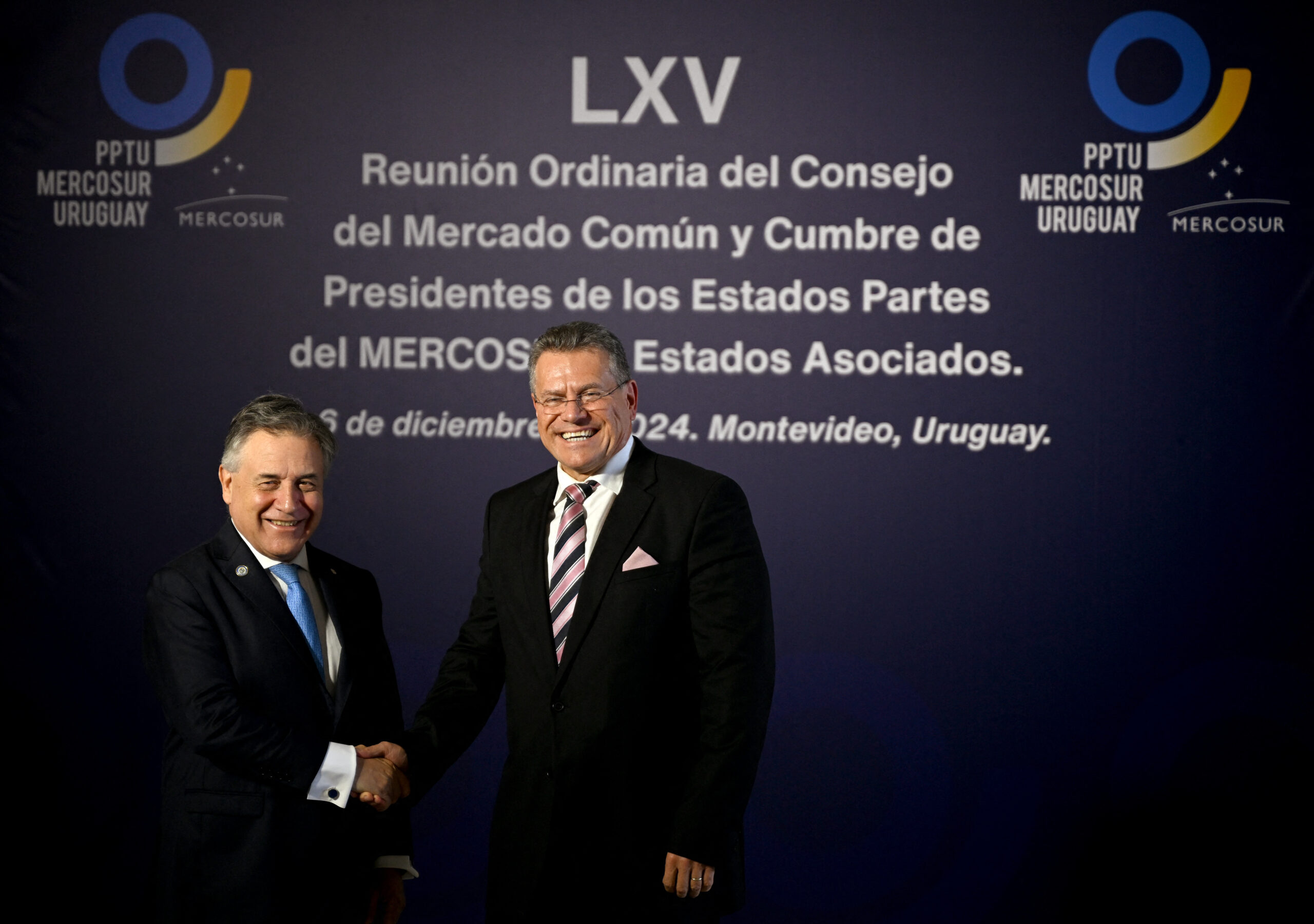Brussels – The European Commission once again reassures European farmers who are on the warpath over the signing of the free trade agreement with Mercosur countries. An agreement that Brussels says should also be evaluated for “its geopolitical importance” not only from an economic perspective. However, EU Trade Commissioner Maroš Šefčovič reiterated, “agriculture will not pay for other sectors.”
The Slovenian commissioner, who was a key figure on Dec. 6 along with Ursula von der Leyen in the Montevideo summit that sealed the end of negotiations after a quarter century, discussed the terms of the agreement today (Jan. 16) with members of the European Parliament’s International Trade (INTA) committee. Jan. 30, members of the Agriculture Committee will expect him for a similar debate.

Responding to the Chamber’s doubts about the benefits the mutual opening of markets will bring to the European agri-business supply chain, Šefčovič countered with numbers featuring several zeros. Companies on the old continent will have access to a market of “280 million consumers with growing purchasing power.” Thanks to the gradual dismantling of tariffs, they will “save over 4 billion a year.” The simplification of customs procedures, Šefčovič insisted, will be “crucial,” especially for the “26 thousand small and medium-sized enterprises that export in the Mercosur area.”
The EU will “lift” the current tariffs of 10 percent on olive oil, 14 percent on malt, 35 percent on wine, and 20 percent on chocolate. At the same time, it will protect Europe’s 349 geographical indications. “There will be no products that look like champagne or anything like that,” Šefčovič promised.
The question, however, is whether Brussels has considered the hypothetical scenario of an invasion of the European market for beef, poultry, and agricultural products (sugar, in particular) from Mercosur. Goods that Brazil, Argentina, Uruguay, and Paraguay produce in large quantities, with milder health and environmental constraints and thus lower production costs, could undercut local competitors once they enter EU territory.
“I am fully aware that EU farmers are concerned,” Šefčovič made clear, assuring that the European Commission “has taken these concerns very seriously.” Compared with the terms reached in 2019, Brussels claims it has negotiated “clear limits to Mercosur’s request to open the beef, poultry, and sugar market.” It has established “clear and well-calibrated” tariff quotas and a “gradual” market opening.
Yet, as far as beef is concerned, Brussels estimates that the massive entry of products from the four Mercosur countries may trigger a price decrease of between 2 and 2.5 percent and a “potential decrease” in production of between 0.5 and 1 percent. “I don’t deny it, and I don’t underestimate it at all,” Šefčovič said. That is why Brussels has included in the agreement several safeguards – including bilateral ones – that could be activated to protect specific agricultural sectors. In addition, it is ready to set up a reserve of “at least one billion euros” to be drawn on to mitigate any losses in the European supply chain. In any case, “we are quite convinced that this will not happen,” Šefčovič concluded.
English version by the Translation Service of Withub







